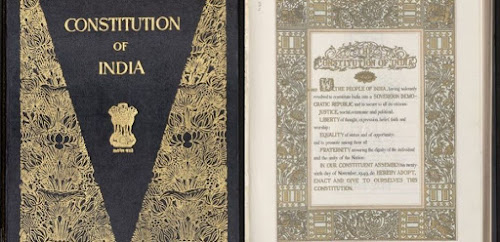The standard set-up of Commissions is a team comprising a Chairperson and a few Members. At present there is no bar in making appointments in these commissions basing on political considerations. It is often felt that the objectives and role of commissions being what they are, they would be able to play a much more effective role in line with what is envisaged in the respective parent Act, if the appointment of office bearers is mandatorily done basing on merits, educational qualifications and expertise and past experience in the field and not on political considerations. The reason is, the Constitution of India, to which the above statutory bodies pay allegiance to, is the supreme law of the country which deserves to be upheld with utmost sanctity and purity.
Monday, June 8, 2020
Supremacy, Sanctity
Subscribe to:
Post Comments (Atom)
A Lofty Principle
One of the most lofty doctrines of the Constitution of India is Article 14 which provides for equality before the law or equal protection of...

-
In our representative democracy, the political party or alliance of parties which secures the majority of seats forms the government and rul...
-
Their Fancy, Our Burden In every election, there are some candidates who contest from two assembly or Parliament constituencies at the sa...
-
One reality which cannot be overlooked in the present context of our economy is the glaring absence of any drive or efforts at any levels to...


No comments:
Post a Comment